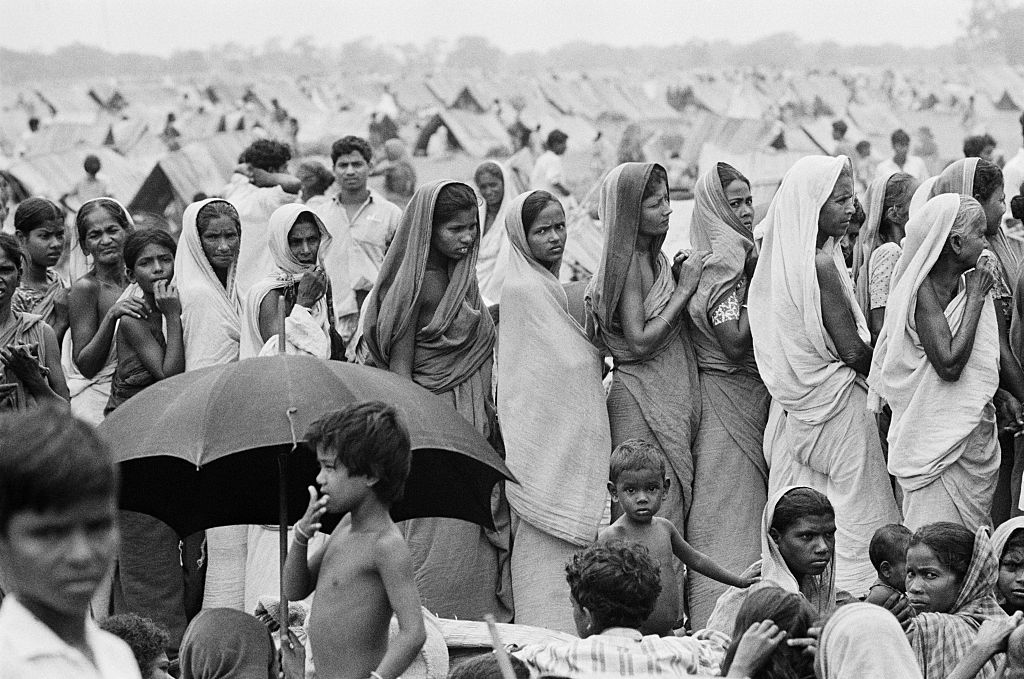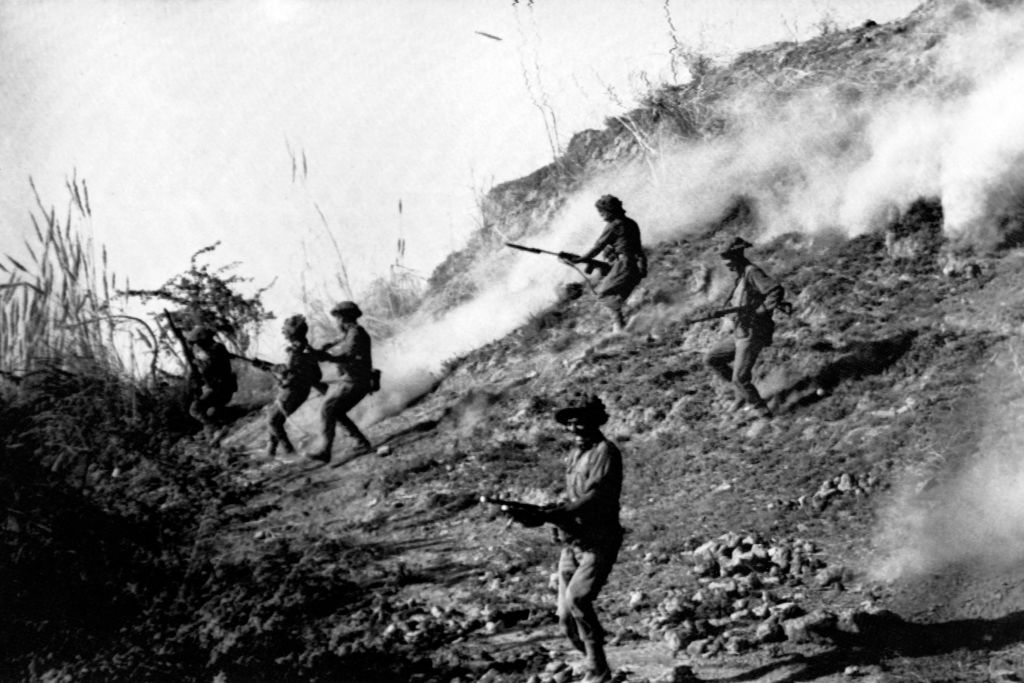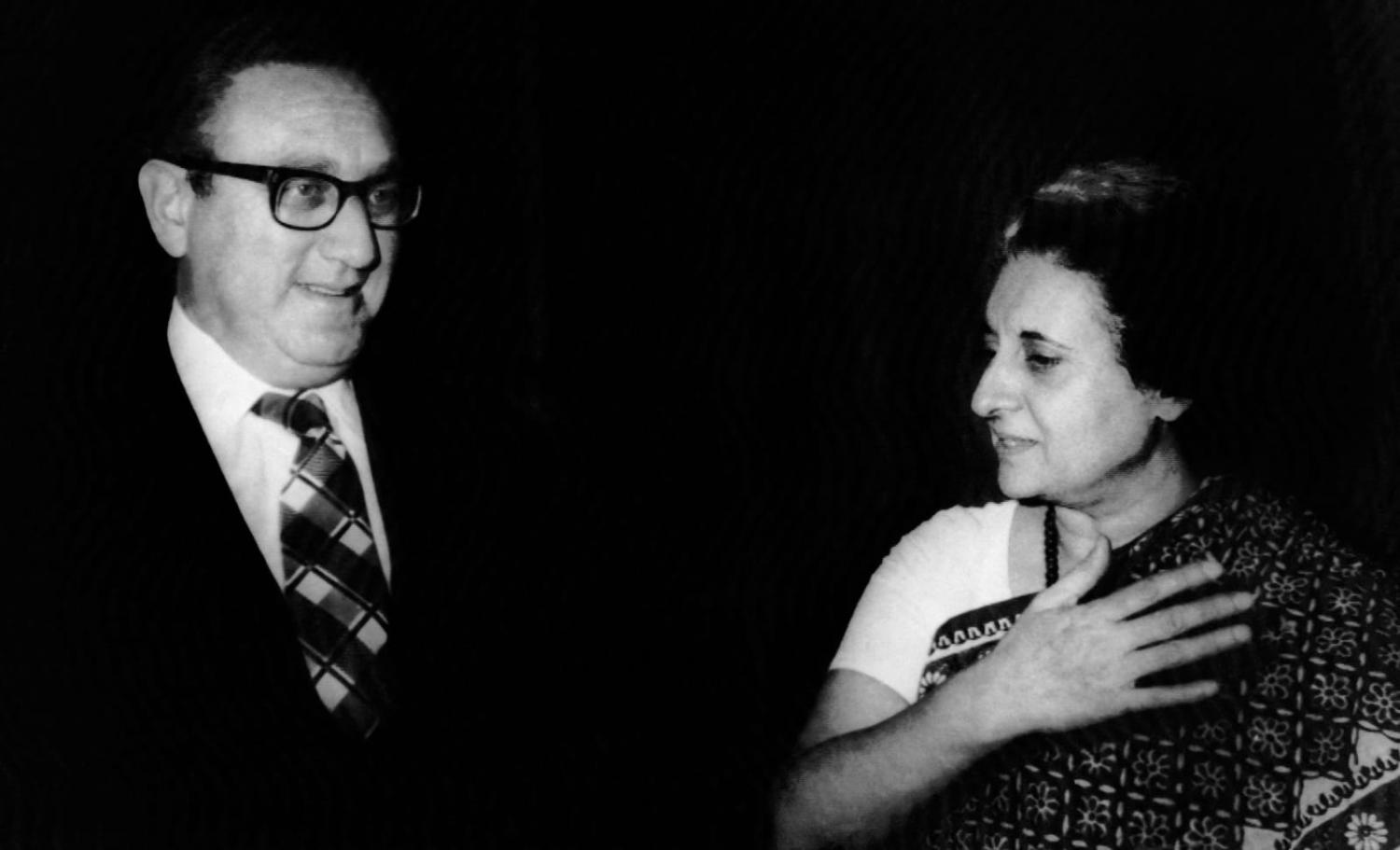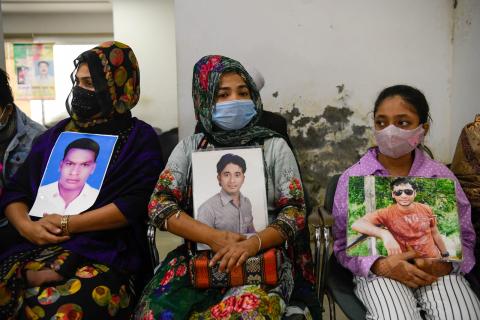Australian appraisals of Henry Kissinger and his statecraft have quickly recalled how his secret visit to Beijing in July 1971 embarrassed the government of Billy McMahon in Canberra, and have dwelt on his differences with McMahon’s successor, Gough Whitlam, over the Vietnam war. Largely overlooked, however, has been the differences between Washington and Canberra as Kissinger led the US response to the 1971 crisis in South Asia.
Ironically, while his Beijing visit was one of Kissinger’s finest hours, a strategic masterstroke, his positioning on the overlapping conflict in South Asia as Pakistan disintegrated and Bangladesh emerged was one of the matters on which Kissinger’s reputation for foresight is most easily challenged.
With the exception of a brief shining moment during the Kennedy years, the US relationship with India had never been close. Washington had long been irritated by India’s non-aligned policies and was suspicious about its closeness to the Soviet Union.
Pakistan, then known by West and East, by contrast had allied itself with the United States during the Cold War and become a pillar of its central Asian bulwark, CENTO. That India was the world’s largest democracy and Pakistan a longstanding military dictatorship counted for nothing in the Nixon-Kissinger equation.
As well, the personal relationships differed: US President Richard Nixon and Pakistan’s Yahya Khan liked and respected each other, while Nixon had no liking for India’s Prime Minister Indira Gandhi, describing her variously (in the White House tapes recording private conversations in the Oval Office) as an “old bitch”, an “old witch” and a “pinko”.
So, when Kissinger was looking for an intermediary with Beijing, Yahya offered as a good choice. Quick to seize the chance, Yahya involved himself personally in the highly secretive planning for Kissinger’s visit to China.
In the meantime, Pakistan had begun to unravel. Yahya had run an election in December 1970, but had refused to accept that the overwhelming success of the Awami League and its leader, Sheikh Mujibur Rahman, in East Pakistan entitled him to first dibs on the new government of Pakistan. In March 1971 negotiations between West Pakistan-based leaders and the Awami League broke down, and Mujib declared independence for East Bengal.
Yahya responded with a vicious military crackdown, which led to the deaths of several hundred thousand Bengalis and the flight into India of some 10 million people. Australia was unusually well informed of what was happening due in good part to the exceptional – and world-leading – reporting of the ABC’s inimitable veteran correspondent, Don Hook.
As civil war erupted, the United States continued to direct military equipment to Pakistan, thus in effect making it complicit in the behaviour of the Pakistan Army in East Pakistan. In reporting to Washington, the American Consul General in Dhaka Archer Blood quickly labelled the Pakistan Army’s methods as “selective genocide”. In early April, Blood dispatched a famous (and career-limiting) policy-dissent cable to Washington referring to a perception of moral bankruptcy and to US support for genocide.
With a bigger game in play, Blood’s advice was ignored and he was soon withdrawn from his post.
India meanwhile, in addition to harbouring millions of displaced Bengalis, had begun to provide support for the militias which were fighting the Pakistan Army.

With all this in the background, Kissinger made an uneasy visit to New Delhi in June 1971, and then flew on to Rawalpindi, whence he embarked on his highly secretive flight to Beijing, attributing his disappearance from public view to illness.
As the tension between India and Pakistan descended into open war in early December, the United States doubled down on its support for Pakistan, increasing the transfer of weapons and equipment (some of it judged later to have been provided contrary to US law). Extraordinarily, a few days into the war, Kissinger personally contacted Beijing to ask that China undertake military manoeuvres in the Himalayas to distract India; wisely, the Chinese did not respond.
While this perfidy was not known to India for some years, the deployment of the USS Enterprise battle group into the Bay of Bengal on 12 December certainly caught immediate attention in New Delhi, not least with veteran Australian correspondent Peter Hastings who in breaking the news excitedly told us in the High Commission that the “Yanks have gone nuts – we’ll all be nuked!” The deployment made no difference to India’s campaign in Bangladesh, but it is still remembered with bitterness in New Delhi.
US support for Pakistan continued in the UN Security Council in the form of draft resolutions calling for immediate ceasefires as Indian forces closed in on the Pakistan Army in East Pakistan and made serous inroads into West Pakistan. With its business unfinished, India had to rely on the Soviet Union, with which it had concluded a treaty soon after Kissinger’s visit to Beijing, to exercise its veto to ensure time for Indian forces to complete their victory in the newly proclaimed Bangladesh.
Australia, meanwhile, had been providing generous and well-publicised aid for the displaced Bengalis in India. Prime Minister Billy McMahon had written to Yayha Khan several times calling on him to end the atrocities in East Pakistan and release Mujib, who had been held in prison in West Pakistan. This action and other indications of support for India distinguished Australia’s positions markedly from those of the United States and also from policies adopted by the United Kingdom, other Europeans, and Canada. When the Enterprise turned up in the Bay of Bengal, Australia’s Foreign Minister Nigel Bowen described the deployment privately as “deplorable”, while Sir Keith Waller, the Secretary of the Department of Foreign Affairs, commented in a letter to a colleague that the United States had “behaved with egregious stupidity” – ironic observations given Australia’s earlier (and subsequent) calls for a greater US naval presence in the Indian Ocean.

Australian policy was based on a number of considerations. At the political level McMahon, with Whitlam breathing down his neck and an election in prospect, may have seen political advantage in distinguishing Canberra from Washington at a contentious stage in the Vietnam war.
Beyond this, the Department of Foreign Affairs had assessed as early as February 1971 that the separation of East and West Pakistan was “nigh inevitable”, and so judged that what Yahya Khan was doing was certain to fail. There was no doubt either that the Pakistan Army’s crackdown was unconscionable in human terms, and that the burden on India was unfair.
But the McMahon government’s policies – supported unequivocally by the Whitlam-led opposition – were also founded in the blunt judgement that in the long run India mattered more to Australia than Pakistan. This was a view pressed strongly by senior policy officials in Canberra and abroad, including the Australian Ambassador in Washington Sir James Plimsoll, the High Commissioner in New Delhi Sir Patrick Shaw, and two of the most senior Canberra-based mandarins, Waller himself and his Defence counterpart, Sir Arthur Tange.
Australia’s support for Bangladesh was demonstrated again in its early recognition of the new state and in subsequent efforts to persuade China, among others, to recognise the new reality in the subcontinent. It was a policy well received in Southeast Asia in particular.
And while Canberra was at odds with Washington on this issue, the broader relationship with the United States was unaffected. Indeed, McMahon was seemingly well-received on a visit to Washington in November.
When it comes to Kissinger’s final report card, his handling of India, Pakistan and the emergence of Bangladesh scores badly. At one level, continued military support for Pakistan as the crackdown spun out of control attracted serious international opprobrium for a US administration already under question over events in Vietnam and Cambodia.
Importantly, at Kissinger’s preferred strategic or “geopolitical” level, while the China prize was significant and its value was proven over the next generation, the manner of its implementation alienated the world’s biggest democracy and drove it even closer to the Soviet Union. And yes, Kissinger had become hostage to Yahya Khan in the pursuit of this grand strategic objective, but were there no other choices as intermediary?
Ric Smith was a junior officer in the Australian High Commission, New Delhi, from 1970 to 1973. He is the author of India, The United States, Australia and the Difficult Birth of Bangladesh, AIIA, 2019.

